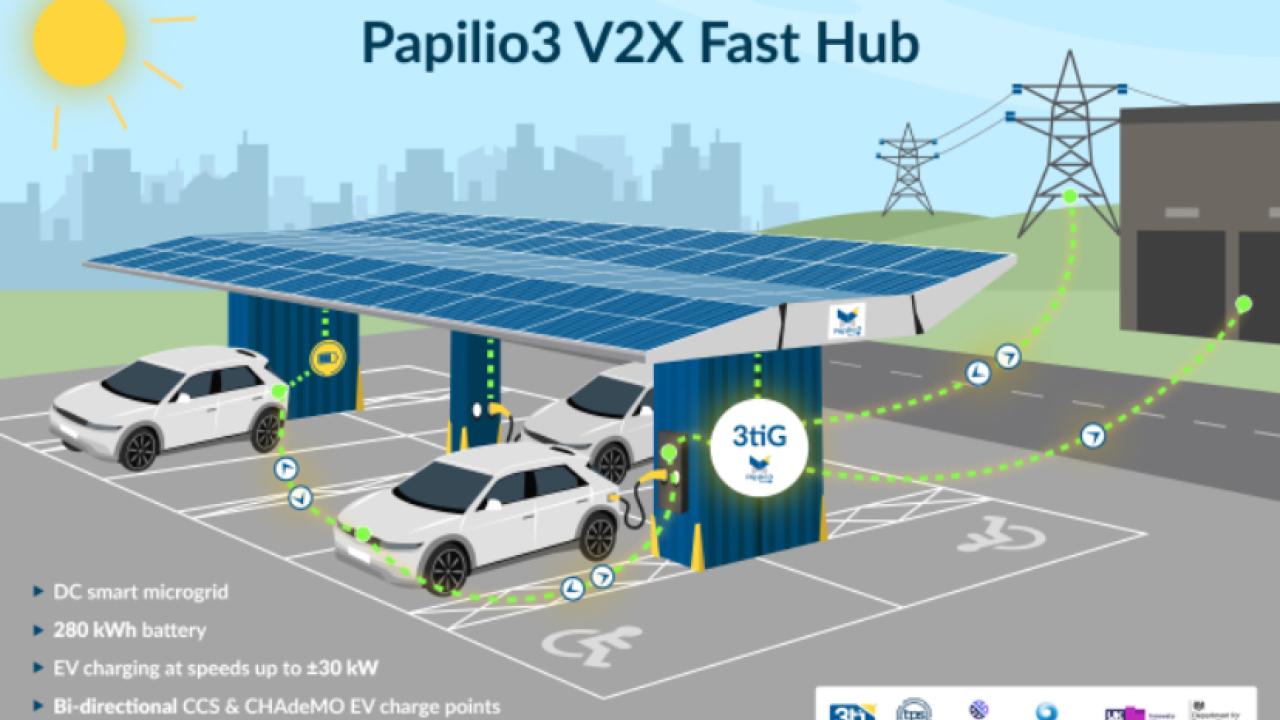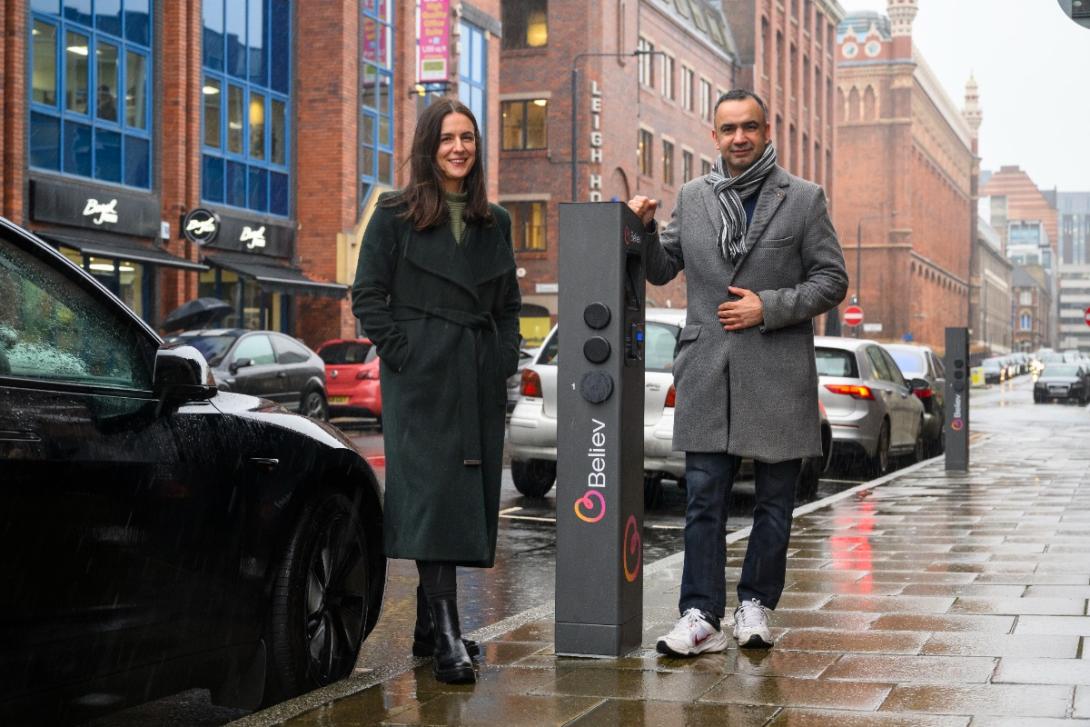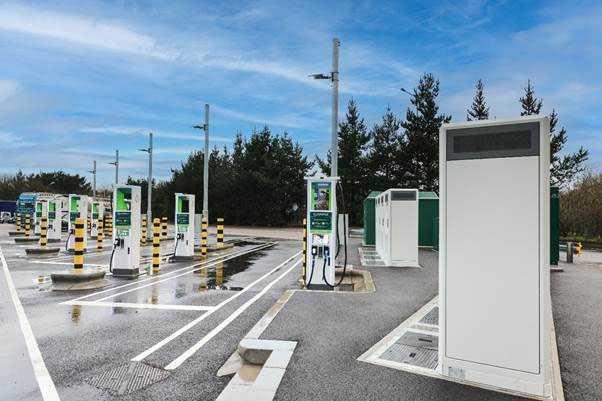A consortium of British companies has secured £1,344,552 in government funding to explore how electricity stored in electric vehicle (EV) batteries can be used to smooth out peaks in supply and demand on the UK's electricity grid.
The project is setting out to integrate bi-directional DC charging and the associated power management systems into Papilio3, a pop-up solar car park and EV charging hub.
The 'V2X FastHub' project will help resolve the issue of intermittent supply from renewables by using EV batteries as grid assets.
The project consortium brings together renewable energy experts 3ti with EV power solutions provider Turbo Power Systems (TPS), smart energy company GridBeyond, and EV & decarbonisation experts Cenex, in a 17-month collaboration to deliver a state-of-the art system, including a six-month real-world demonstration.
3ti will lead the project, delivering a customised Papilio3 with smart grid controls and a 280 kWh DC battery. TPS will harness its DC microgrid systems, managing the bi-directional charging technology through both CCS and CHAdeMO EV charge points, while GridBeyond will oversee energy management and aggregation services through its flexible Energy Management System (EMS). Cenex will host the vehicle trial, which will include the procurement of the trial vehicle fleet, data capture, analysis and final report to Innovate UK.
Specially adapted as a V2X FastHub unit for the project, 3ti's innovative Papilio3 is a smart grid 'in-a-box' that can host up to 12 EVs at a time, housed within an upcycled, rapidly deployable shipping container that can be placed almost anywhere. With a solar canopy and energy storage battery, the system has already delivered in a range of applications for factories, hospitals, leisure centres and council buildings across the UK. For this particular application, Papilio3 will implement a new DC microgrid system – integrating three times faster, bi-directional DC EV charge points with a 280 kWh integral battery storage system and 20 kWp solar roof array.
Through a 'charge-as-a-service’ business rental model, the unit simplifies installation and reduces up-front costs – or the need for long-term commitment. The result is a commercially attractive, replicable and scalable EV charging solution for a multitude of organisations, including medium dwell-time workplaces, destinations, return-to-base fleets and delivery depots. The provision of EV charging at amenity and business locations maximises revenue generation and enables the faster roll-out of EV charging while simultaneously reducing the burden on carbon-intense rapid charging infrastructure.
The project is funded by the Department for Energy Security and Net Zero, delivered by Innovate UK.







